“Today [16 Feb 2012] the UBC Faculty Association hosted a lecture titled “Is Real Estate Part of Your Financial Plan?” as part of their Financial Planning Lecture Series. The speaker was Tom Davidoff, Assistant Professor at UBC Sauder School of Business. In the past Prof. Davidoff had been interviewed on CTV, and discussed on this blog.” [1. ‘Tom Davidoff, Sauder School of Business, UBC – “There’s not going to be any free lunch in Vancouver. There’s no entitlement to own a nice home in the most beautiful place on earth. So I think people need to be prepared just to accept that reality.”, VREAA, 1 Dec 2012; 2. ‘Tom Davidoff, Sauder School of Business, UBC – Clarification’, VREAA, 2 Dec 2012; 3. ‘Tom Davidoff Knows About RE Cycles’, VREAA, 4 Dec 2012 -ed.]
“Today’s lecture was fantastic. He did not adopt a dogmatic bull or bear stance, but instead was quite pragmatic.”
“His main points were:
1) It’s ok to rent
2) Discussion of legitimate rationalizations of owning
3) Vancouver price future is uncertain with clear downside risk
4) Vancouver is not going to be cheap anytime soon
5) Owning housing can be viewed as both risk and insurance.”
The slides from his talk are available here, and here:
http://www.facultyassociation.ubc.ca/docs/fpls2012_L4.pdf

“I jotted down some interesting remarks, some of which are taken from the slides:
– (concerning slide 4) “If you want something to be distressed about, try this. Vancouver vs Seattle: the rents are the same, but prices are 40-50% greater, even though the tax rules tell us it should be the other way around.”
– (concerning slide 13) “Prices here have risen way faster than rents. This is worrisome and reason to be pessimistic”
– “Vancouver is the nicest city in China” (slide 19)
– “Short run risk of bubble collapse in China” (slide 19)
– “There is a risk of a bubble. Prices could absolutely fall 50%.”
– “There are other nice cities on the coast, but you can’t buy citizenship there like you can in Canada”
– “20-50% of sales are mainland Chinese buyers” (did not state precisely where or what)
– “If you need a 20% downpayment on a $1m home, which in Vancouver is a starter home, and not a very nice one, then it will be very hard to achieve this [if you a UBC employee] with a PhD in English”
“I commend Prof. Davidoff for being the first Sauder faculty (that I have seen) to publicly give a useful and rational discussion of the Vancouver housing market. I apologize for any erroneous quotations.”
– the above account and commentary from ‘Anonymous UBC Professor’ forwarded to VREAA via e-mail 16 Feb 2012
—
Thanks, indirectly, for the talk, Tom Davidoff; and thanks for the reporting thereof, ‘Anonymous UBC Professor’.
For those of us who weren’t at the talk, the pdf slides give a fairly good idea of the material covered. It’d be great if video, or audio, or transcription, of the entire talk emerges.
Davidoff discusses Vancouver rent vs buy, and pricing, in a more complex and more subtle way than we have seen elsewhere. Ideas regarding interpersonal differences in desire for mobility and stability involve important (and very difficult) calculations.
He honestly states that there is a possibility of large magnitude price drops, and is open about his lack of certainty going forward. When Tom states: “Easy to see downside risks; Easy to envision long run growth”, we wonder about how he would weight the probabilities of various different outcomes.
What are his best guesstimates regarding chances of ongoing growth; chances of a crash?
When a careful student of RE markets says “I can’t say if we’re in a bubble or not”, and “Prices could absolutely fall 50%”, but also “It’s easy to envision long run growth”, how are prudent owners and prospective buyers to respond?
When we ourselves join the available dots that the current market lays out, we continue to see very prominent downside risk, with only a very small chance of an ongoing price growth scenario. But we, too, acknowledge lack of complete certainty.
Isn’t that always the way in markets?: One can never be certain, but, one way or another, you have to take a position. You assess and weigh the probability of various outcomes as best you can, and then make decisions about how to position yourself, keeping in mind the consequences of various outcomes, and the particular effects they could have on you. Thus, a couple in their 20’s with 5% down on a condo, and a retired couple worth $10M who own their own $3M westside home outright, may have very little quality of life to lose from a RE crash, and may happily go on owning. But a 58 year old with 3 dependents, inadequate retirement funds, and more than their entire net-worth in a $1.3M east-side house, may suffer devastating consequences from the very same crash. We’d expect the 58 year old to be worried about even a low probability of crash outcome, because the consequences would be so dire, and for them to take up a more defensive stance towards their RE exposure. At what ‘best estimate level of crash-probability’ should the 58 year old sell? 30%? 15%? 5%?
Davidoff is reluctant to jump on what he appears to see as some kind of ‘bubble-caller bandwagon’. Perhaps his perspective is at least partly the result of his US post-bubble experience, where, post-implosion, everybody came out of the woodwork with “we-knew-all-along” fudging. Here in Vancouver itself, ‘bubble callers’, amazingly, remain in the small contrarian minority. Tom says “Many are willing to declare a bubble”; but we can think of few local examples. At least he is now on record as saying we’re possibly in a bubble. We agree, of course.
Overall, a stimulating series of slides, and as our invaluable reporter-on-the-ground says, the talk appears to have been both “fantastic” and “pragmatic”. Tom Davidoff’s analysis is a welcome addition to the local discussion. We continue to extend an open invitation to him to post a piece discussing Vancouver RE on these pages. We’d just as eagerly like to see a comprehensive essay by him in the local press.
– vreaa





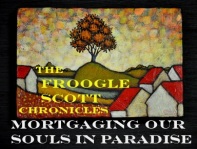




















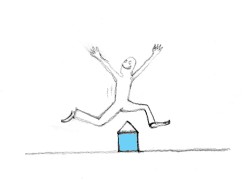

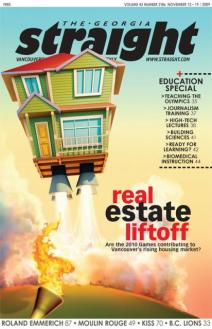




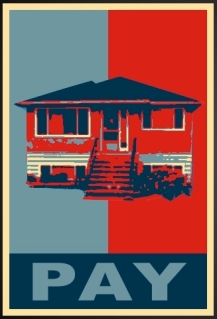
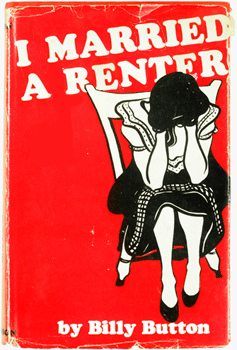
Rents are not so bad here. The quality of the rental stock isn’t very high though. We’re off to the US anyways. Ultimately the spread between wages and costs is lower elsewhere.
As a side, I’m very bored with people in this city stating that it is the most beautiful on earth. Yes. Compared with Edmonton it is practically heaven. I strongly doubt those making that claim have done the necessary legwork to make an informed opinion.
Amen. I have become so tired of the “most desirable on Earth”. I personally have *always* thought other cities were more beautiful. I came here for the people; but they’re leaving.
Let’s start with San Francisco. It’s at least an order of magnitude better in just about every measure… even real estate prices these days.
Then there’s San Diego, which is basically heaven.
Freiburg, over in Germany, is fantastic. Berlin is actually “world class,” as is Paris. Neither has to tell people about that, though. People just know.
Vancouver is nice. But I’ve been and lived all over the place, and Vancouver is just “nice.” Not much more than that. And on rainy weeks like this one, it’s actually less than nice. Sort of wish I were in San Diego, actually.
Well, everyone is counting on Chinese to keep up the local market, but the Chinese RE market is almost dead now. No sales. It’ll be interesting to see how that plays out here.
Just went briefly to another West Side open house a few blocks from where I live now. Large corner lot, nice older house, multiple bids expected, house will be torn down, new one built, laneway house probably as well.
When I asked the realtor if he was expecting the bids would be offshore money, he nodded immediately and said an emphatic “Yes.”
So somebody’s still coming here and buying.
There’s another house on the same block that is expected to provoke a similar bidding war next week.
“Well, everyone is counting on Chinese to keep up the local market, but the Chinese RE market is almost dead now. No sales. It’ll be interesting to see how that plays out here.”
stats please?
http://www.bloomberg.com/news/2012-02-06/china-property-stocks-decline-on-real-estate-sales-outlook-beijing-mover.html
Don’t know about ‘almost dead’, but certainly slowed down.
Congratulations VREAA on the feature scoop and pending followup.
Only one tiny irk with the goodly professor’s information… I wish people would take ‘home owner’ out of their lexicon. It’s a marketing gag, like giving somebody more tasks along with a new fancy job title. If you buy, you hold title to a property, but if you are subject to seizure, fluctuating property tax or eminent domain, you never owned the property. If you can order the king’s representative off your land, then you truly own it.
Most working families rent from the bank, pay the expenses, and hope to sell for a profit. Compound interest and inflation limit this.
The solution for affordability lies with simple interest and a cap on speculation. But for that, you have to elect someone.
Alas, the government sold out your resources for little royalty and now they need to import wealth to pay for the aging.
Expanding on simple interest. With the potential for an astute theorist—such as the one named in the post—reviewing these comments, I can’t resist sticking it to the banks with a hair brained formula for alternative affordable lending. Thanks for VREAA for your patience.
Registered Shelter Property Tax Free Lending
Government puts up a 100000 security bond*
Lender puts up 100000 loan
Borrower makes payments of 6% annual simple interest on the original principle for the life of the loan.
Simple interest is divided:
2% to lender for earned tax free interest
2% to lender for principle
2% to government Accumulating Cash Account to buy the bond
When half the principle is paid back, the Accumulating Cash Account is paid towards the principle.
At this point, the lender regains their principle and they earned 50% tax free interest over the life of the loan.
If the borrower defaults, interest on the original security bond pays for insurance to recoup the government and preserve the borrower’s position in the property. Insurance could also be used to initiate a new security bond.
Anyone can be the lender.
At some point in a traditional compound loans, the principle is paid off. However the borrower still must make payments because the principle is reduced gradually as annual interest is paid first. In Shelter Property Tax Free Lending, the loan ends as soon as the principle can be paid off. The Lender keeps the earned interest tax free. The government earns interest on the Accumulating Cash Account.
*Investors who finance a Shelter Property Tax Free Bond, earn interest on the Accumulating Cash Account tax free.
Simple principle: anyone can be a lender, anyone can finance a bond, the government holds the bond and the Accumulating Cash Account. When principle is half paid, the Accumulating Cash Account pays the remainder of the principle and the loan ends. The government earns interest on the Accumulating Cash Account.
(if the math works, give me a notation. Formerly debtless in poco, now just debtless.)
Yes, I agree. Terrific scoop. Is this place turning into the Georgia Strait all of a sudden? Perhaps that Anonymous UBC Professor will sit in on a lecture given by Tsur Sommerville too. I honestly have to wonder if Tsur sings the same story in the lecture halls as he does in the media. Wouldn’t it be hilarious to discover the real Tsur is a closet R/E doomer and thinks we are headed for a big fat correction?
If someone hasn’t diversified since May 2008 and is narrowly focused on one asset class, doom doesn’t weigh in their psyche. Sales dept. does what Sales dept. does. I wouldn’t rely on them for forecasts. Watch what big concrete does. Not to mention all the geologists who won’t live within five miles of high tide. But that’s a different style of doom.
Concrete is a great indicator if you can get the data, as are gravel operations and the employment numbers associated. Large layoffs in any of those tell you contracts are drying up and construction slowing.
Some of us have been watching similar data from China. The really important numbers relate to coal demand for both electrical production and steel making, Iron ore shipments, electrical usage and forward copper demand are also important. The non manufacturing PMI is falling.
Since we often cannot get good information from China on these we rely on information provided by public companies involved in the mining business, shipping volumes, rail traffic and anecdotes of construction activity over there. BHP Billiton comes immediately to mind where ores are concerned.
If you are curious, all of these are showing confirmation of drops (except copper) while auto production is way off and industrial electrical usage thinning. The same rhetoric that you hear applied to Vancouver’s housing bubble is alive and well in the investment community. Perhaps it is even worse.
Some people simply refuse to believe a major correction is already underway there and will fight you tooth and nail on the subject to the last breath. Course, plenty of commissions are involved. Oh wait, realtors get those too.
Beware those with an financial interest bearing good news!
I disaggre with a few surmises
Vancouver has poor economic fundamentals with severely overpriced RE that is eating away at everything else. Van is not likely to recover anytime soon even with 20 to 30 percent devaluation.
And, oh yeah, chinese will save everyone. Wishful thinking!
Yes stats! That reminds me that I neglected to post my chart the other day. I was commenting on why there is no such thing as a soft landing during a real estate correction. When GDP growth is as low as we are now experiencing there is no doubt whatsoever that a hard landing is in store.
Here is the reference chart for starters (American of course, we have not had our correction yet). The chart is the Case Shiller composite index of 20 cities showing the severity of the decline over time.
http://en.wikipedia.org/wiki/File:Cshpi-peak.svg
What is notable by viewing the chart is that almost 75% of the declines (averaging 34% nationally) happened during a fairly brief 18 month period from mid 2007 through to the end of 2008. During this time there was absolutely no doubt in anyones mind that a “serious correction” was in progress. The outcome of course was a hard landing. For reference I have added a few of the notable remarks of that time.
Genesis of a price collapse ~~ From Wiki……
“The booming housing market halted abruptly in many parts of the U.S. in late summer of 2005, and as of summer 2006, several markets faced the issues of ballooning inventories, falling prices, and sharply reduced sales volumes. In August 2006, Barron’s magazine warned, “a housing crisis approaches”. As the housing market began to soften from winter 2005 through summer 2006, NAR chief economist David Lereah predicted a “soft landing” for the market. Angelo Mozilo, CEO of Countrywide Financial, responded, “I’ve never seen a soft-landing in 53 years, so we have a ways to go before this levels out…….
You all know the rest……it is in the history books now.
Pragmatic or CYA? Personally I find it a bit hard to envision long run growth from current prices.
I certainly agree with the Vancouver won’t be cheap anytime soon point, just like Sydney things have gone so far that even a relatively hard landing will take some time to work itself out. I was looking at historical sale prices in our building and the apartment opposite ours would still be overpriced based on it’s 2002 sale price! Never mind what it sold for last year.
1. Perceived safety is not safety in reality.
2. Only 20% of immigrants to Vancouver are from Mainland China
3. He is getting confused with what risk is.
4. Nobody has to own in Vancouver, there plenty of land in Canada.
Sounds like someone needs to take a plane ride to see the forest from the trees.
He makes some great points, specifically that Vancouver will not be “cheap” for a long time, if ever. Even with a 50 percent price reduction Vancouver real estate will not be “cheap”. Even without asian money, its still one of the most desirable places to live in all of Canada.
So we need to define “cheap”. Investor A buys a condo today in Vancouver and rents it out. Investor B buys a condo today in San Diego rents it out. One does better than the other. This isn’t rocket science, but throw up a few PP slides and it might seem that way.
My interpretation of “Vancouver will never be cheap” is that “Vancouver will always have the west coast premium and be the most expensive city in Canada”. That seems completely plausible to me.
That is the point that’s missed: a condoinvestor gets rent, not intangible benefit. Davidoff needsto explain why Vancouver investors can accept poorer returns than other cities.
He showed it in his slide — cap gains are shown as independent. Maybe — just maybe — they aren’t.
why do people still call it ” the most beautiful place on earth”? I lived in the province for 30 years and Van for 11. I thought it was the most overrated blandest place in North America. To this day I still don’t see it
Good second tier city (There are many that are much better).
Less snow than most other cities in Canada (not necessarily better weather)
Chinese seem to like it
Rest is delusion
I would disagree with calling it 2nd tier, Dallas is 2nd tier L.A. is 2nd tier. Maybe 4th or 5th.1st being the true world class cities: NYC, Paris, London and Tokyo.You know World class cities that don’t call themselves that only BCer’s seem to the use the term.
Within the PNW style topography, I will always stand my assertion that Oregon was superior to BC
Vancouver is Γ at best. Turn it upside down for the secret clue.
It was nice in the Sixties Ed. Remember we used to dig for clams and oysters off Kits Beach, Lacarno, the Yacht club in those days. Little red crabs scurried over the rocks, there was real seaweed, bull-whips, sand dollars and strange sea shells that washed up. Huge logs used to roll in daily from god knows where but there was no doubt the place still had life. We even had the odd sighting of killer wales, plenty of seals were living off Stanley Park and (this might sound incredible) we used to go fishing there. You could even eat the damn fish!
Now the place is a shit hole and open sewer. (just my personal opinion).
But… there are lots of Starbucks. That has to count for something.
Yeah, and a Bowmac sign. Uhgg. What a legacy for the kids. Bet they would have preferred the days you could go swimming without checking coliform counts first.
(yes, I know I am wasting my breath…we are not getting the old days back anytime soon).
“You should have seen the Atlantic Ocean back then!”
— Burt Lancaster, Atlantic City
I had positive memories on the island during childhood in Oak Bay on the beach. I now live in the US and wouldn’t go back to BC. As I got older BC never convinced me what the marketing would suggest. For some reason I turned on BC, I don’t see it worth living in.
Give Vancouver credit for one thing. It was marketed brilliantly. So well in fact that the city outsmarted itself and the locals who climbed on board the BPOE train early were both rewarded well and then subsequently priced right out of their own neighborhoods for life. Just like refugees.
Marketing gone wrong. A victim of its own success.
Does Vancouver have the most highly subsidized rental housing in the world? That has to count for something.
For some discussion with Tom Davidoff related to the talk, see the next post:
All the new construction in Arbutus is NOT selling or selling VERY slowly. What’s selling are tear downs for $1.5 and up. It seems like anything over $3 million isn’t selling.
On the west side of Van there are currently 771 single family homes (SFH) for sale right now. Of these:
144 (19%) are $2 million and less
253 (33%) are greater than $2 million but less than $3 million
374 (48%) are greater than $3 million!
To think about actually slapping $2 million let alone $3 million down for a home?! Wow. I can totally understand why houses over $3 million aren’t moving. Even HAM finds them expensive.
I am not saying $1 million is “cheap” but people can swing it, (Canadians and HAM), but $2 million is truly out of the price range of almost ALL people and $3 million, well…. I don’t know many, even top lawyers, doctors and other professionals with that type of cash to throw down on a “typical” house on a 50 foot lot. Seriously, think on this. $3 million!
We are WELL beyond any reason now. Truly we are. And I agree you have to choose your side and I’ve clearly chosen mine. This market is NOT sustainable and I see a at least a 40% correction, and 50% correction would NOT surprise me.
I am not so sure LS. Once prices get into a range that is well above norm they are no longer subject to the regular rules and worries. Housing in the 3 million dollar plus range is not typical housing that is overpriced for middle class people anymore.
Rather, it may be becoming property that is only available to an elite class of buyers. From this perspecitve the sky is the limit and we no longer need to discuss it. Those who buy such properties are not generally going to be affected by the rise and fall of values and so concerns about a bubble will not be one of their major considerations.
I know nobody wants to hear that. If overseas money is buying those homes and leaving them empty though it is not for speculative purposes. Forget about money. The motives are far deeper and are rooted in security, safety etcetera in the same way you or I might buy a farm to escape the city just in case the financial system crashes.
These ‘elite’ buyers are some of the cheapest bastards you can imagine. They will certainly be upset if they purchased a 4M home that is now worth 2M, just like you or I would be.
As for Davidoff, he can’t even spell detached (detatched) and his presentation looks amateur in content and delivery. I’ve got zero respect for his ‘opinions’ on RE.
We’d agree more with LS and less with Farmer on this one.
Just because prices in a speculative mania move into the rarified stratosphere, doesn’t mean houses enter a parallel universe and live on as non-carbon life-forms. Gravity still holds.
As LS states, there are not many sales going on above $2M, $3M… most west-side sales are of knock-downs (tomorrow’s $2.5M-$3M ask-price new builds).
As we’ve stated before, we expect many of these $2.5M-$3M ask-price properties to sell for $1M or less in the trough.
You could be right. I am nowhere near Vancouver so it is harder to make a judgement call and I don’t know in any detail who is actually buying. Only you guys do so I will take your word for it. I can only imagine having to be around the chronic hype day in and day out though. It must be maddening for you guys. When I was making my comment I was thinking about how insanely overpriced parts of London and New York got. There was a break from fundamentals there that also defied logic. My idea was that perhaps that is what is happening on the West side with all the Asian money coming in…..it used to be that Richmond was full of empty homes that were owned by absentee Hong Kong owners. Those too seem to have been purchased on different fundamentals and many people wondered then as now how anyone could afford to buy and hold like that. It seems not much has changed. I find it hard to rationalize a home purchase in the multi millions as a usual family investment though. Three million plus is getting pretty rich if only 1% of Canadians earn in excess of 200,000 dollars annually. Even the 1% would seem hard pressed to make monthly payments (if such things exist once you hit those numbers). Hopefully this helps explain my rationalization. In the meantime, I would certainly be curious to know if any of those mega-million dollar purchases are being made using CMHC guarantees. I would consider that to be a real abuse of the system.
“$2 million is truly out of the price range of almost ALL people and $3 million, well…. I don’t know many, even top lawyers, doctors and other professionals with that type of cash to throw down on a “typical” house on a 50 foot lot. Seriously, think on this. $3 million!”
Professionals? Try rich immigrants.
Canadian citizenship is absolutely for sale. In 2009, your government encouraged 3779 rich immigrants from China to buy Canadian citizenship and settle in BC. That’ll chew through a mere 374 West side homes at $3m a pop pretty quickly.
Click to access imm10t4a.pdf
They settled most likely in BC – uninvited, circumvented their immigration conditions and took french leave of the provinces that nominated them…..
Immigrant-investor program in Maritimes collapses in scandal, lawsuits
http://tinyurl.com/7j28euc
Manitoba probes immigrant-investor program
http://tinyurl.com/75vzclu
Vancouver and Canada are stable. Chinese Van property ownership is a step towards citizenship and Passport – exit stategy from china now secure! It is the ‘Asian Century’ Vancouver is the only non US major city on west coats, proximity to Asia. The resources of Western Canada will drive the Canadian economy and the wealth generated will benefit Vancouver with direct RE investment. The East Coast US and Canada are dead, their closest economy across the Atlantic is Europe. My bet is Vancouver will remain stable, RE with attached land value will continue to go up, Condo’s will struggle, especially older buildings.
“The East Coast US and Canada are dead”
My condolences to NY.
FYI More Chinese are going to US then Canada, specifically, NY
Oh well, tee hee, if you use data…
There’s a few things you might want to know:
– commodity prices are cyclical
– The US consumes most of its own production, it’s not as much of a trading nation as many others
– The US is still by far Canada’s largest trading partner
These stats ARE interesting. Thanks for the link!
Click to access imm10t4a.pdf
There is no denying at the $3 million plus bracket that it’s mostly foreign money driving the market. That said, I wouldn’t say the number of wealthy foreigners with $3 million + in their back pockets for a home on the West side is unlimited. Of course you can’t quantify this, but, it’s not unlike looking at our own population. A certain percentage (with bank financing) can afford to own up to $1 million, a very much smaller percentage can afford above $2 million and above $3 million, unless you are VERY independently wealthy…. of which, I personally only know a few.
I know of one couple that is Canadian, who recently sold their house for $1.5 million in Kits and is now looking at the new build across the street for $3.5 million (both homes with mortgage helpers.) I estimate they make $600k between the two of them. They will be putting every cent they earn into this place. And again, what are they getting? A 3,600 square foot home, on a 50 by 122 foot lot. Where is the logic here? Do you think moving from their $1.5 million fixed up tear down to a new home is worth the $2 million extra spend? I only hope they are thinking long and hard, or that someone gets through to them, or the bank doesn’t approve them for a $2 million mortgage! (OMFG!) And this also ignores the potential for a correction. They can’t “afford” to lose 30% – 50% of the purchase price.
Now there are 26 homes for sale greater than $3 million being SOLD, mostly by these offshore buyers in Arbutus. I wonder how they feel when they haven’t sold for 5 months? And where we they when the market corrected in 2009?
I am not sure if I am making any point other than $2 – $3 million is such a ridiculous amount of money, even for most of the onshore and offshore “1%.” Arguably if it is all offshore money, then the risk is that much greater. For offshore buyers, their Vancouver home is equivalent to our recreational property: it’s the first thing to be dumped when hard times happen. And not sure what to think of what’s happening in China right now, but, it doesn’t look good. As well, don’t think that the government (US, Canada or other) can’t step in at any point and adjust policies to make one place more attractive and another less attractive. That’s a relatively “easy” fix. In fact I’ve heard from a girl at work that immigration in Canada is getting stickier in issuing visitor visas to family. She had to meet her mom in Seattle because her mom, from mainland China, wasn’t granted a visa to come into Canada to visit her daughter here.
I enjoy the discussion.
There is now a 10-year Super Visa facilitating multiple visits for parents and grandparents, making it much easier to sponsor them. That is, if the sponsors can meet their financial obligations:
– minimum income threshold
– processing fees of around $550
– health insurance, that is a killer
Federal Immigrant Investor Program:
The Immigrant Investor Program seeks experienced business people to invest C$800,000 into Canada’s economy and become permanent residents. Investors must:
* show that they have business experience
* have a minimum net worth of C$1,600,000 that was obtained legally and
* make a C$800,000 investment, which the government will return to you in 5 years without interest
Now the government is only taking 700 applications a year. This new annual cap came into force on July 1, 2011. The cap will reset on July 1, 2012, unless otherwise indicated in a future ministerial instruction. The cap does not apply to the Quebec Immigrant Investor Program.
http://www.cic.gc.ca/english/immigrate/business/investors/index.asp
While on the topic, this looks interesting:
The Impacts Of China’s Real Estate Crash. A Hard Rain Is Gonna Fall.
http://www.chinalawblog.com/2011/12/the_impacts_of_chinas_real_estate_crash_a_hard_rain_is_gonna_fall.html
Thanks LS. That article was fascinating. I am betting that the biggest external shock to Vancouver’s real estate bubble is in fact the events now unfolding in China. I like the last line where the author notes that all he has written about has already happened. Not like it is a theory anymore or a potential event. The shit is hitting the fan over there and in the end we will feel it as falling commodity prices, reduced investment in homes and even rising prices for some consumption goods. Yeah, they have huge domestic inflation in China and wages are on the rise even as the housing bubble is bursting. I have read one estimate as high as 16% real inflation although that is impossible to verify.
Early in January, I was forwarded some data about recent immigration from a very reliable source that I didn’t share with the blog, but given some of the discussion threads recently, I think I’ll share it now.
According to this source, apparently BC Stats from the Real Estate Foundation show that in Q3 2011 BC saw the highest ever recorded net Non Permanent Resident influx of 8,613 people, representing nearly half of the population growth in BC (46%).
If I’m not mistaken, Q3 was about the height of the buying mania here, though local, anecdotal evidence I’m seeing suggests that there’s still a lot of offshore buying going on.
But please note also I am quite convinced by the VREAA host’s opinion that local speculators, banks and the CMHC have enabled this whole mania here.
If blog readers will forgive me, I’ll paste this here and also copy it to the current thread, in case it’s useful there.
Another double entry (sorry):
Whoops, to clarify: Q2 was the height of the buying mania; Q3 would have been, for example, when students or families arrived after the buying.